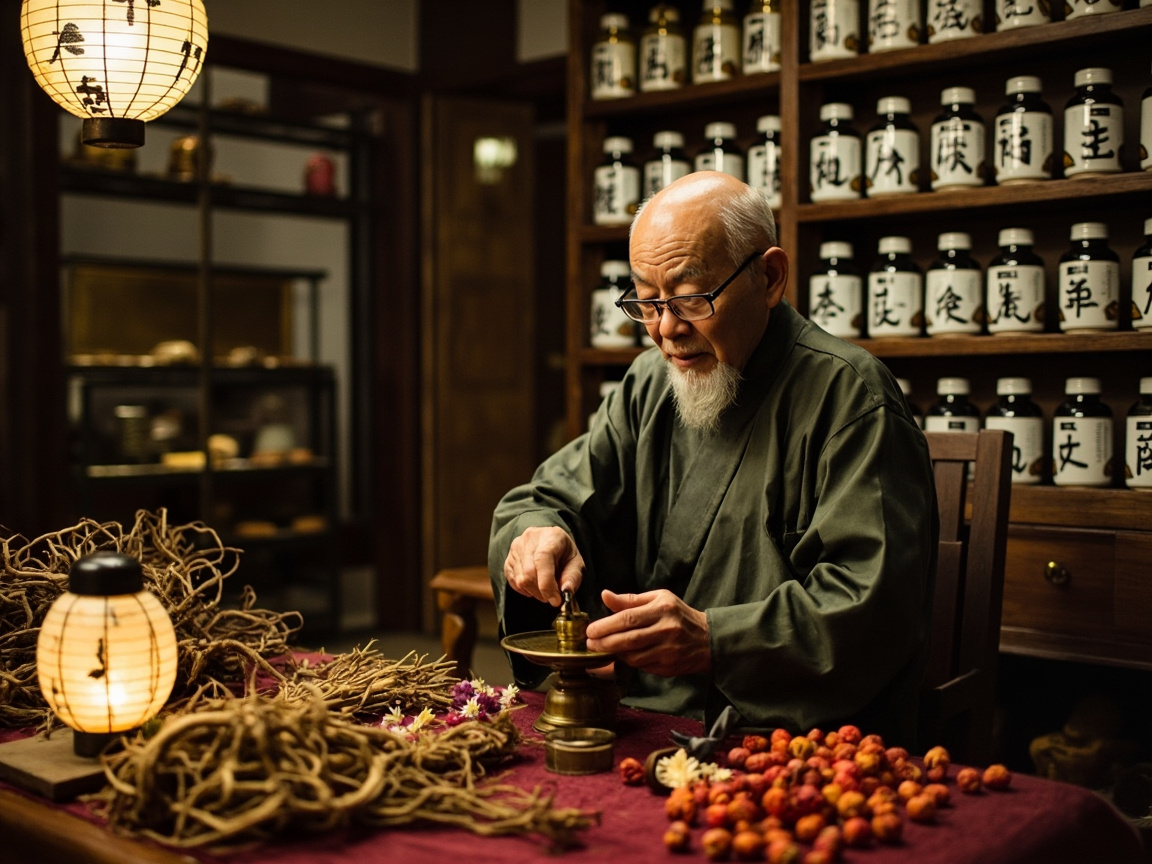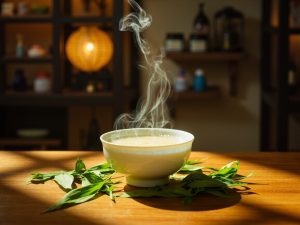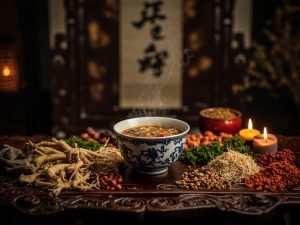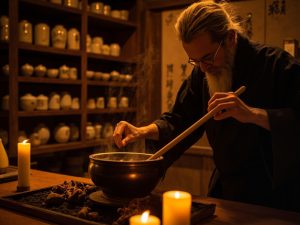Table of Contents
ToggleChai Hu Gui Zhi Gan Jiang Tang – Nan Kaiyang
Author: Nan Kaiyang Editor: Gu Yuxi Translator: Gu Yuxi
Original Text:
From Shang Han Lun (Treatise on Cold Damage), Clause 147: For cold damage of five or six days, where sweating has been induced and then purging performed, if there is fullness and slight binding in the chest and hypochondria, difficulty with urination, thirst but no vomiting, only sweating on the head, alternating chills and fever, and vexation; this indicates the condition is not yet resolved. Chai Hu Gui Zhi Gan Jiang Tang is indicated.
Etiology and Pathogenesis:
This condition arises from Shaoyang disease being mistreated by inducing sweating and then purging, which consumes body fluids. Exterior evil then takes advantage of the deficiency to enter the interior. Shaoyang Qi stagnation leads to slight binding in the chest and hypochondria, disrupting the pivotal mechanism . Shaoyang Gallbladder heat disturbs upwards, desiring to resolve through head sweating. The evil qi injures the middle, damaging Spleen Yang, resulting in “Gallbladder heat and Spleen cold.” The treatment principle is to clear Shaoyang heat and warm Taiyin cold.
Understanding the Clause:
After cold damage has been treated by sweating and purging, the evil enters Shaoyang, disrupting the pivotal mechanism. As the Hand and Foot Shaoyang channels often influence each other, on one hand, Gallbladder fire is internally depressed, leading to impaired free coursing. On the other hand, Shaoyang Sanjiao (Triple Burner) becomes obstructed, losing its function of regulating water passages. This causes water-dampness to accumulate in the middle, and the water passages lose their proper regulation, preventing Yang Qi from diffusing. Hence, symptoms like fullness and slight binding in the chest and hypochondria, difficulty with urination, and thirst appear. Evil sinking into Shaoyang, with Qi depression and discomfort, leads to fullness and slight binding in the chest and hypochondria. Gallbladder Qi flaring upwards scorches body fluids, causing vexation and thirst. Heat that is depressed and unable to diffuse externally steams upwards, leading to sweating only on the head. The struggle between righteous Qi and evil causes alternating chills and fever. Gallbladder heat has not invaded the stomach, so there is no vomiting. Obstruction of the Sanjiao Qi dynamic leads to difficulty with urination. Internal injury to Spleen Qi, resulting in Taiyin deficiency-cold, leads to abdominal fullness or loose stools.
Medicinal Effects:
Chai Hu (Bupleurum Root) mainly addresses intangible Qi accumulations from diet in the intestines and stomach, and cold-heat evils. It promotes resolution and renewal. When combined with Huang Qin (Scutellaria Root) in an 8:3 ratio, it resolves depressed heat and treats fullness and discomfort in the chest and hypochondria.
Huang Qin, being bitter and cold, is paired with the acrid and warm Gan Jiang (Dried Ginger) to resolve the slight binding.
Tian Hua Fen (Trichosanthes Root), with its moistening property, combined with the astringent property of Mu Li (Oyster Shell), nourishes fluids and quenches thirst.
Gui Zhi (Cinnamon Twig) and Gan Cao (Licorice) treat rebellious Qi and harmonize the exterior.
Gan Cao and Gan Jiang regulate Middle Jiao Qi.
When all these herbs are used together, they disperse wind-cold from the exterior, and also purge cold-heat from the interior, while simultaneously transforming dampness and expelling turbidity.
The combination of cold and warm herbs clears the upper and warms the lower, promoting smooth Qi dynamics and harmonized Qi and Blood. This perfectly aligns with the therapeutic principle of regulating Qi dynamics in cases where the cou li (space between skin and muscles) is open in this disease.
Disclaimer:
The experiences and insights shared above represent the author’s personal usage and understanding, and are provided for reference only as part of academic exchange. Please do not blindly replicate or apply them; any consequences arising from such actions are solely your responsibility. As individual constitutions vary, medication should be tailored accordingly. It is advisable to use such treatments under the guidance of a qualified physician. If you have additional experiences to share, comments and submissions are welcome.
If you appreciate my article, please give it a like.
If you are a generous and affluent individual, please consider making a donation!
Your recognition is my greatest motivation to continue writing—thank you very much!
USD Donation Button —
A RMB donation button is available below.
 微信赞赏
微信赞赏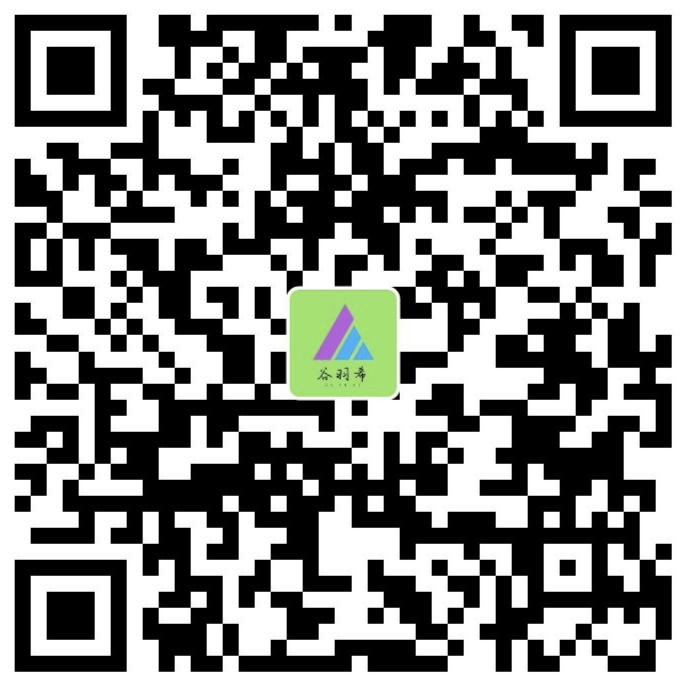 支付宝赞赏
支付宝赞赏

